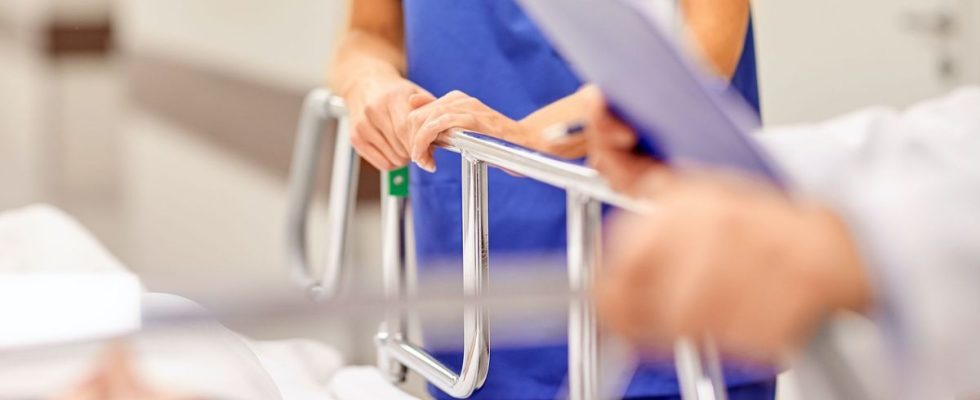Published on
Updated
Reading 4 min.
in collaboration with
Ivan Pourmir (medical oncologist)
In December 2021, Shiloh, a 13-year-old girl, died of mammary angiosarcoma, an unlikely breast cancer in a child. Today, her parents believe that caregivers did not do everything they could to diagnose her. Dr Ivan Pourmir explains to us how delicate such a situation is.
Did Shiloh die because of an under-researched cancer? The 13-year-old girl actually died in December 2021, under the helpless gaze of her parents from breast angiosarcoma, an extremely rare breast cancer in adults, even unknown in children. If his parents first filed a complaint against in Shiloh’s hair), it is today against caregivers and hospitals that they are turning. According to them, no establishment was able to make the correct diagnosis in time.
Cancer has avoided possible diagnoses for too long
Mr. and Mrs. Diakité have filed 41 complaints in recent days with the Pontoise public prosecutor targeting several caregivers and establishments for endangering the lives of others and failing to assist a person in danger. According to them, their daughter was poorly taken care of.
Particularly when Shiloh develops redness, and a breast becomes painful, hot and swollen. The caregivers would thus not have seen the emergency, and mentioned various causes for several months, such as the hypothesis of abuse, cat scratches or even mastitis. “infinitely more common than cancer at this age”in the words of the management of the Franconville women’s imaging center, targeted.
The teenager would then have received antibiotics in vain, until a diagnosis arrived on August 28, 2021, following a biopsy. A discovery too late, deplore the parents.
Poor care linked to the patient’s young age?
When questioned, the medical expert from the conciliation and compensation commission estimated that a good diagnosis would not have saved the teenager. But in the Parisian of March 4, Shiloh’s parents raise another facet of the care of adolescents today: due to his young age, Shiloh would not have benefited from the best care.
The imaging center, for example, reportedly refused to do a mammogram because of the sensitivity of the teenage girls’ mammary glands to radiation. The gynecological emergencies at the Ermont clinic also refused to examine her because she was under 15 years old.
“These are not medical errors, we were faced with refusals of care” underlines the angry mother.
More than two years after the death of her daughter, she wants to shine a spotlight on the care of adolescents. “We need recognition from the State, she must not have lost her life in vain.” she punctuates in everyday life.
“Medicine acts above all on what seems likely”
Was Shiloh the victim of medical negligence, as her parents may think? We asked Dr. Ivan Pourmir, an oncology researcher and member of our expert committee, for an opinion. If he cannot judge the work of colleagues in a case that he has not personally followed, he nevertheless returns to what medicine requires and which can sometimes explain a late diagnosis.
“What you need to know is that whether you are a general practitioner, a pediatrician, or even a specialist doctor, our job is to constantly evaluate probabilities and act on what seems most likely to us. But we must be realistic, it is impossible to take into account all the diagnoses” he says.
Because in this delicate balance of benefits/risks, the multiplication of examinations for very unlikely diagnoses could also be harmful to the patient.
“We must avoid iatrogenics, that is to say the fact of launching a whole series of examinations which could cause physical and psychological harm to the patient, if they do not seem to be a priority. If we make every effort to diagnose cancer in a person in whom it is very unlikely (when it has much more logical causes), there can be serious consequences which can also be blamed on doctors. Let’s not forget this other aspect of care” reminds our expert.
Patient feelings must also be taken into account
The tragic case of young Shiloh is therefore perhaps the exception so feared by doctors and families. Dr Pourmir develops for us:
“I’m not saying everything was done correctly, I don’t know. But I try to explain why a doctor thinks of one thing rather than another depending on the situation of the person he has in front of him. The cancer mentioned is rare and atypical. This is not the diagnosis that should be considered first in a patient of this age. And his symptoms could suggest more urgent things, like an infection that could lead to septicemia. Unfortunately, something tragic happened here. But for 999 other patients, it was the failure to treat this as a priority as an infection that would have caused danger. We cannot prioritize care in relation to a particular case.”
Read also

At the same time, our specialist mentions another principle in medicine that should be remembered here: that of not neglecting the feelings and symptoms of a patient who suggests an unusual symptom.
“When there is something that we do not understand, which persists despite the treatments implemented, it is important to remain attentive to patients, to their parents when they are children and to give ourselves the means to move forward. Saying to yourself, “I don’t understand, but it’s probably nothing”, that’s not an acceptable word from a doctor.” concludes our expert.
